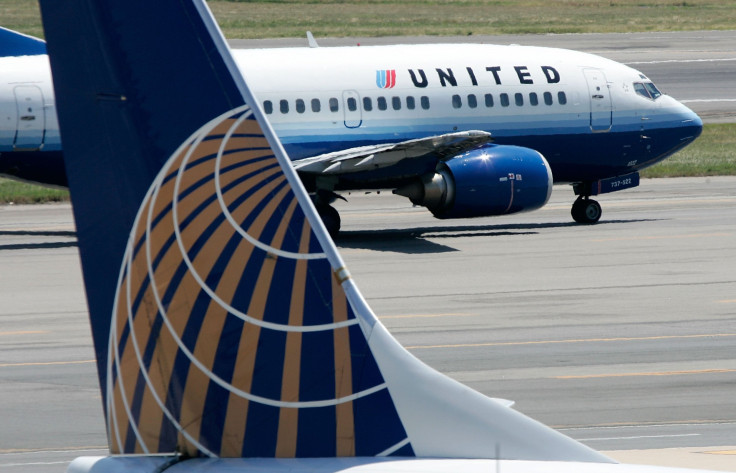PETA Responds To Dog's Death In United Airlines Cargo Hold [EXCLUSIVE]

United Airlines came under fire once again this week as news broke that a 5-year-old Cavalier King Charles Spaniel named Lulu died in the cargo hold on a flight from Houston to San Francisco. The family of the dog said the plane was held on the tarmac for two hours August 6, on which day temperatures reached above 90 degrees in the city. In an exclusive interview with International Business Times, People for the Ethical Treatment of Animals (PETA) responded to the dog’s death.
“It’s tragic,” Daphna Nachminovitch, a PETA spokesperson, said of Lulu’s death. “Our hearts go out to the family and obviously the dog.”
Details of the dog’s cause of death remained unclear Saturday. However, Nachminovitch was quick to point to reports that named United Airlines as the most frequent offender in animal deaths on flights, which federal law requires carriers to report. Nachminovitch added, “The bottom line is that animals are not luggage, so we don’t want to see them put in cargo.”
Read: Dog Dies In United Airlines Plane Cargo Hold After 2-Hour Tarmac Delay
PETA noted the importance of pet owners in educating themselves about what occurs while animals are being transported by airlines. In the case of Lulu, the Rasmussen family claimed the animal was cleared for travel by a veterinarian before the trip. But the family couldn’t have accounted for the two-hour delay on the tarmac while their flight awaited departure from the George Bush Intercontinental Airport, at which time PETA said the dog should have been removed from the cargo hold.
“It’s really important for people to educate themselves on what’s happened in the past with airlines — on this dog’s tragic death, obviously, given that there was a delay,” Nachminovitch said. “The airline should have absolutely gotten the dog out of cargo without delay. A dog is not a suitcase.”
“In addition to the absolute terror of being in cargo and being handled like cargo, obviously conditions in cargo are not suitable for a living being,” she added. “There are a few airlines that have stopped offering that service and only offer in-cabin transport, and that is absolutely what we suggest people do. Cargo can mean the difference between life and death.”
Nachminovitch specifically addressed Lulu’s breed — one that has a snub nose — as being at high-risk in cargo holds as a result of its shorter air passages. She named pugs, boxers and other breeds with similar facial structures as being equally vulnerable in extreme weather conditions.
PETA acknowledged that there are size restrictions to animals that are able to enter airline cabins with their owners — perhaps with an exception being service animals — and that such restrictions may vary between carriers. But Nachminovitch noted that an alternative to flying an animal in cargo would be to leave the pet with a trustworthy guardian, or depending on the travel distance, to drive rather than fly.
United Airlines issued a public apology after news of the dog’s death and claimed that an internal review was underway.
“We are so sorry to learn of Lulu's passing and have reached out to our customer to offer our condolences and assistance,” the airline said in a statement issued to IBT. “We are deeply upset any time an animal suffers an injury while traveling with us and especially grieved in the rare instance that one passes away. We are conducting a thorough review of this incident.”
“The only effective way to keep animals safe is not to fly them in cargo — plain and simple,” Nachminovitch told IBT of United Airlines’ announcement of a “thorough review.” She pointed to the widely publicized incident of a rabbit dying while being transported by United Airlines earlier this year as reason to be wary of any significant changes to its policies on animal handling.
Read: United Airlines Rabbit Dies On Flight After Celebrity Bought World's Largest Bunny
“According to the statistics that are publicly available, [United Airlines appears] to be responsible for one-third of all animal deaths on U.S. flights in the last five years. And that’s a very, very high rate,” Nachminovitch said.
PETA estimated that 53 animals, excluding Lulu, died on flights between January 2012 and February 2017. A report from the U.S. Department of Transportation issued in February found that United Airlines had the highest number of animal deaths during transport last year at nine. On its website, the animal rights organization estimated that “more than 300 animals have died in cargo holds since 2005, including 74 on United flights.”
“The most important thing for people to know is this is not an isolated incident. This has happened frequently over the last few years. It will continue to happen,” said Nachminovitch. “Our advice to travelers is please don’t let the next death be your dog or your cat.”
© Copyright IBTimes 2024. All rights reserved.




















